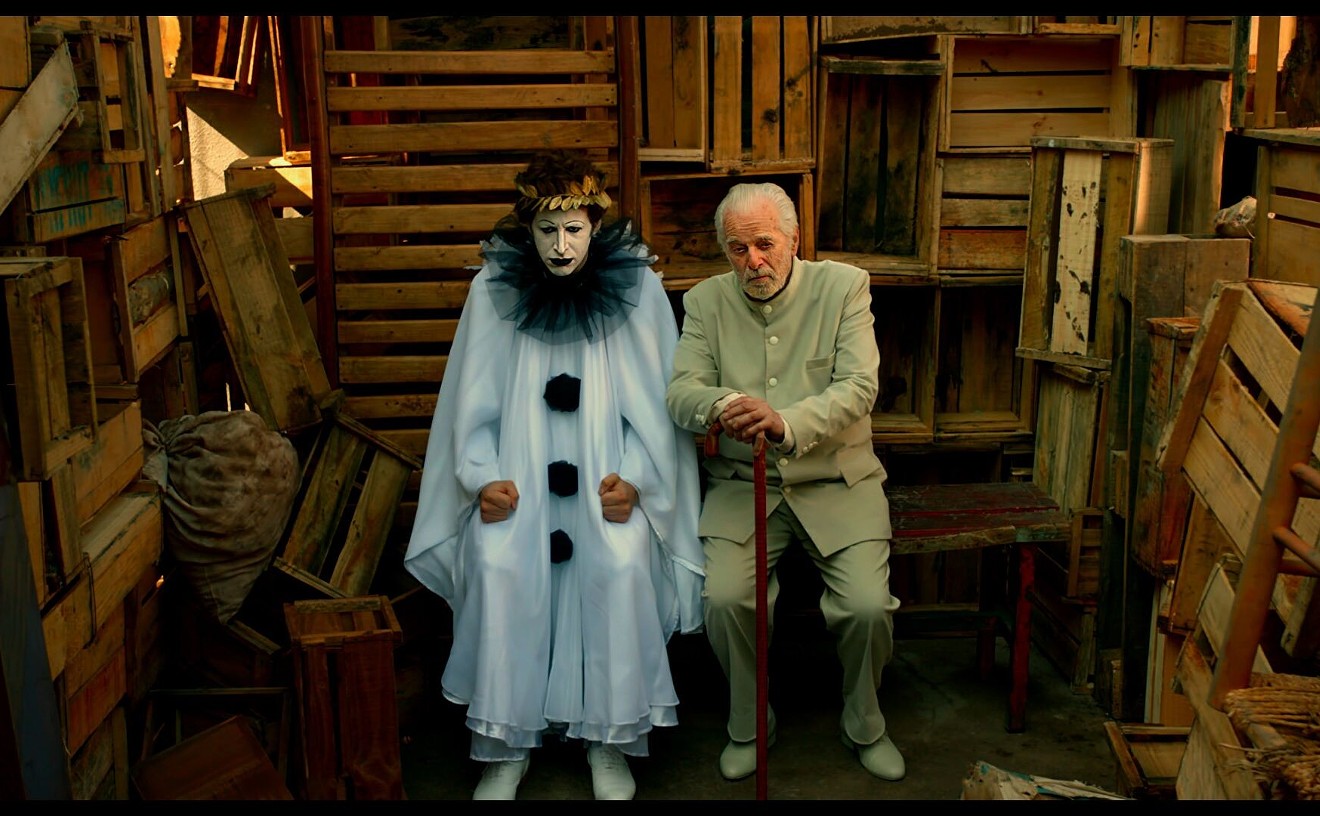At 88 years young, the rebel-shaman filmmaker Alejandro Jodorowsky has led an eclectic life and enjoyed a provocative career not easily encapsulated. His 1970 acid western, El Topo, crowned him godfather of the midnight-movie craze. His phantasmagoric 1973 masterpiece, The Holy Mountain, was ripped off by Kanye West for the design of his Yeezus tour. His impossibly ambitious, unfinished Frank Herbert adaptation was anecdotally chronicled in the Cannes-vetted doc Jodorowsky's Dune. And that's just within cinema — "Jodo" has also been a playwright and a novelist, a writer of comic books and a musician, a Tarot scholar and the inventor of "psychomagic" therapy. He once was a mime who studied with Marcel Marceau.
Jodorowsky began to unpack his origins and his emotional baggage in 2013's The Dance of Reality (the first in a proposed pentalogy of autobiographical magic-realist fantasies), which concerned his melancholic 1930s childhood in Tocopilla, Chile, under the roof of his Stalin-obsessed, authoritarian papa, Jaime (played, via Freudian stunt casting, by his real son Brontis), and ever-coddling mama, Sara (opera singer Pamela Flores, who serenades every line of dialogue as an ironic corrective to his real mother's unrealized dream of being a vocalist). Dance was a welcome return after the director’s 23-year filmmaking hiatus: playful, perverse, occasionally profound, yet frustratingly uneven in its conspicuous budget constraints and self-indulgent longueurs.
You need not have seen that film to delve into its spectacular follow-up, Endless Poetry, which picks up in the 1940s with Alejandro and his Jewish-Ukrainian folks moving from their provincial home to open a garment shop in Santiago. Dazzlingly shot on location by cinematographer extraordinaire Christopher Doyle (In the Mood for Love), this color-splashed, user-friendly sequel draws a heartfelt if comically absurd portrait of a young man growing into his identity by leaning into his creative passions. Taking over for Dance’s Jeremías Herskovits (who briefly cameos as the ragamuffin "Alejandrito"), Jodorowsky's youngest son, Adan — who also composed the film's score — steps into the now older role with the methodical, loose-limbed physicality of a professional clown.
Thirsting to become an artist but taunted by his tyrannical father, Alejandro escapes into the night and the loving (sometimes lusty) embrace of manic, carnivalesque bohemians. At the Café Iris, he discovers a mentor and lover in the voluptuous misfit poetess Stella (Flores again, with bright-red hair, Divine-like makeup and gold-painted breasts) and shakes up the system in rabble-rousing collaborations with fellow writer Enrique Lihn (Leandro Taub). Jodorowsky periodically turns up onscreen as a spectral adviser to his younger self, like a cartoon version of Wings of Desire's observant angels, while black-clad stage ninjas add and subtract props "invisibly" from scenes — moments played as Brechtian gags.
Episodic in structure, Endless Poetry feels like a scrapbook of amended memories filtered through Jodo's lysergic proclivities, still on-brand decades later. There are Nazi dwarves and amputees. There is more full-frontal nudity than the MPAA could stomach (naked crowd-surfing at a circus!). Epic choreography commingles a marching band of red devils with a street procession of skeletons. This self-reflexive ode to following muses, finding meaning in nothingness and transcending the sensitive roadblocks between fathers and sons is loopy, irreverent and more intensely personal than anything its mystic creator has invented before.
Support Us
Houston's independent source of
local news and culture
account
- Welcome,
Insider - Login
- My Account
- My Newsletters
- Contribute
- Contact Us
Jodorowsky’s Endless Poetry Continues a Phantasmagorical Coming of Age
[
{
"name": "Related Stories / Support Us Combo",
"component": "11591218",
"insertPoint": "4",
"requiredCountToDisplay": "4"
},{
"name": "Air - Billboard - Inline Content",
"component": "11591214",
"insertPoint": "2/3",
"requiredCountToDisplay": "7"
},{
"name": "R1 - Beta - Mobile Only",
"component": "12287027",
"insertPoint": "8",
"requiredCountToDisplay": "8"
},{
"name": "Air - MediumRectangle - Inline Content - Mobile Display Size 2",
"component": "11591215",
"insertPoint": "12",
"requiredCountToDisplay": "12"
},{
"name": "Air - MediumRectangle - Inline Content - Mobile Display Size 2",
"component": "11591215",
"insertPoint": "4th",
"startingPoint": "16",
"requiredCountToDisplay": "12"
}
,{
"name": "RevContent - In Article",
"component": "12527128",
"insertPoint": "3/5",
"requiredCountToDisplay": "5"
}
]


